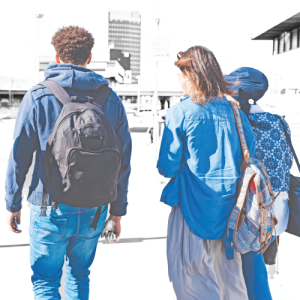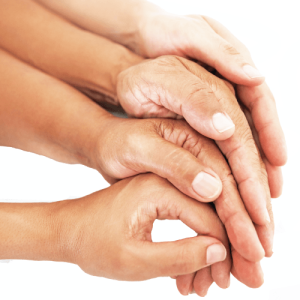
2020 LGBTQIA+ Pioneers

Over the centuries, many brave and exceptional individuals, often at significant personal risk, went against the odds and refused to let inequalities and prejudices stop them from changing the rules, laws and opinions relating to the LGBTQIA+ community across the globe.
We all must remember and celebrate all those exceptional individuals. Those people that are now and in the past who have fought hard for equal treatment for the LGBTQIA+ community
Each year we create LGBTQIA+ dollars and feature important and key individuals related to the LGBTQIA+ community. Though some of the individuals featured may not have publicly identified as LGBTQIA+, they are exceptional people who have advanced the community or world in some way.

Montpellier, France
b. 1753 – d. 1824
Jean-Jacques was a crucial player in decriminalising homosexuality under French Law in the early 1800s. Jean-Jacques was a lawyer and statesman during the French Revolution. When the revolution ended, he became one of the Napoleonic Code authors, A code that still underpins the French civil law and the laws in many other countries.
Jean-Jacques was an openly gay man, a fact which was widely known in his social circles. He never made any effort to conceal it. There are even accounts where Napoleon Bonaparte himself referenced Jean-Jacques’ sexuality. Being a gay man during this period of history was dangerous. Before the French Revolution, sodomy was a capital crime with a maximum penalty of death by being burnt alive at the stake. Very few people received the maximum penalty. Many were given warnings or short prison sentences; however, the threat was always present.
Though Jean-Jacques helped decriminalise homosexuality in France through his work, it is widely believed that this was done in error rather than by design. The Napoleonic Code was implemented after the French revolution by Napoleon Bonaparte. It was a revised form of Roman Law that dealt with matters relating to civil law. Though homosexuality was left out of the Napoleonic code, Jean-Jacques was not responsible for officially ending the legal prosecution of homosexuals. It was not until 1810, when the Penal Code authors formally left out references to homosexuality, and it was at that point that it became officially decriminalised.
Whether intentional or not, Jean-Jacques contributed to the decriminalising of homosexuality in France and many countries worldwide, enabling many to have the freedoms they enjoy today.
Thank you, Mr Regis de Cambaceres, may you never be forgotten
TAKING PRIDE IN YOU

Philadelphia, Pennsylvania, USA
b. 1929 – d. 2017
Edith sadly lost her partner, Thea Spyer, in 2009. Following Thea’s death, Edith faced a significant tax bill for the assets she shared with her partner. The unfair Inheritance tax and legal definition of her relationship resulted in Edith filing a lawsuit against the U.S. federal government. The court case (the United States versus Windsor) would become a landmark victory for the same-sex marriage movement in the USA.
Edith was from a Russian Jewish immigrant family whose family suffered greatly during the Great Depression in the 1930s. Edith’s childhood was not easy, from questioning her sexuality from a young age to being subject to anti-Semitism throughout her childhood. In 1957, Edith obtained a Master’s degree in Mathematics from New York University. Shortly after her graduation, Edith joined IBM, an organisation where Edith worked for over 16 years. Edith worked in systems architecture, operating systems and natural language processors. In 1975, Edith formed a consultancy firm specialising in software development. Her organisation helped many LGBTQIA+ individuals and groups in her local community become I.T. literate.
Edith spent many of her early years living in the closest, even marrying her brother’s best friend Saul Windsor in 1951. However, their marriage only lasted one year. In 1963, Edith met Thea Spyer, an Amsterdam-born psychologist. Though they would meet frequently, it would take two years before they started officially dating. In 1967, Edith and Thea wanted to get married; however, it was not legal in the USA. It was only until 1993 that they were able to register for a domestic partnership. In 2007, after Thea received a terminal diagnosis, the couple decided that they could no longer wait. They travelled to Canada to get married, even though their relationship’s legal status was not recognised in their home country.
Upon Thea’s death, Edith was required to pay 363-thousand U.S. dollars inheritance tax for assets they shared. At the time, the U.S. government defined a spouse as a heterosexual relationship between a man and a woman. When officially married, upon the death of a spouse, the remaining spouse is not required to pay any inheritance tax. In 2010, Edith filed a lawsuit against the U.S. federal government, citing that the Defence of Marriage Act, known as the DOMA, discriminated against same-sex couples. In 2013, the U.S. Supreme Court ruled that DOMA was unconstitutional and was a deprivation of a person’s liberty protected by the Fifth Amendment. The landmark ruling enabled the legalisation of same-sex marriages across the U.S.
Edith was a trailblazer in technology. Edith helped change the USA’s law to enable many same-sex couples to be married and recognised within the law through her direct actions.
Thank you, Ms Windsor, may you never be forgotten

Dublin, Ireland
b. 1854 – d. 1900
Oscar was a brilliant playwright and poet but suffered greatly because of his personal life. Unfortunately, Oscar lived in London in the late 1800s, a time when sodomy (the term relating to the sexual act performed within gay relationships) was illegal. The punishment, if prosecuted, resulted in prison sentences and hard labour. Oscar’s success and relationships made him a high profiled example of the anti-LGBT laws that existed at that time.
Oscar was born in Dublin, Ireland, to a renowned and knighted ear and eye surgeon. Oscar’s early years were privileged, with Oscar attending many prestigious academic institutions. After reading classics at Trinity College, Dublin, Oscar went to Magdalen College, Oxford, to read the literary greats. While at Oxford, Oscar became known for his decadence, with his long hair and his room decorated with peacock feathers and flowers.
After Oxford, Oscar began working as a journalist and, in 1881, published his first collection of poems. In 1888, while editor of Lady’s World, he produced nearly all of his literary greats over seven years. While living in London, Oscar met and married Constance Lloyd in 1884, and they went on to have two children. Through his work as a journalist, plays, and published works such as The Picture of Dorian Gray, Oscar’s popularity increased as he became well-known, and his work quickly began to receive critical acclaim.
Like in his public life, Oscar’s personal life was also getting much attention. In 1885, the Marquess of Queensbury left a calling card at Oscar’s club, the Albemarle; the note read “For Oscar Wilde, posing somdomite.” Against the advice of his friends, Oscar started legal proceedings against the Marquess for libel and defamation. To avoid a jail sentence if found guilty, the Marquess built a case against Oscar. Private investigators were hired to prove Oscar’s association with male prostitutes, crossdressers and homosexual brothels. Many of the people interviewed were being threatened to appear as witnesses. Many were also involved in the crimes Oscar was being accused of committing. The case built by the Marquess was so compelling that he was acquitted of all charges, and Oscar was forced to pay all of the Marquess’ legal fees, bankrupting Oscar.
Once the libel case was over, Oscar was immediately issued a warrant for his arrest on the charges of sodomy. The charges were brought about due to the evidence presented in the libel case relating to Robbie Ross, with whom Oscar had a relationship. The court hearing lasted over one month, and Oscar was ultimately found guilty. Upon the ruling, Oscar was sentenced to prison for two years of hard labour, which consisted of many hours of walking a treadmill and picking oakum. Once Oscar’s sentence was over, he immediately exiled himself from Britain and lived out his remaining years in France.
Oscar’s literary works are still appreciated today, with many being made into films or referenced in popular television shows. Oscar’s challenges in living his authentic life against such high personal risks to his reputation for someone so public make him a true pioneer.
Thank you, Mr Wilde, may you never be forgotten
EXCEPTIONAL AND DIVERSE LGBTQIA+ COMMUNITY

Buffalo, New York, USA
b. 1921 – d. 2000
Peggie was born in 1921 and was assigned male at birth; she knew from a young age that she was different and would often wear her mother and sisters’ clothes and cosmetics. Being a crossdresser or transgender individual in the 1920s and 1930s was hard, which meant Peggie, for many years, lived as a man to fit in, dressing and living as a woman only in secret. After graduating from college, Peggie married and started a family before joining the Air Force during World War II. Peggie opened an insurance business after being honourably discharged from the Air Force. Peggie began expanding her family and went on to have four children, continually living in fear of being found out by her friends and family.
After Peggie’s religious wife found Peggie asleep at home in women’s clothing, Peggie decided to begin living her true and authentic life. Peggie had been at home alone and had fallen asleep, not expecting to be discovered. Peggie’s wife tried to be supportive initially; however, ultimately, her beliefs would lead her to divorce Peggie in 1973.
After the divorce, Peggie struggled financially, starting a furniture refinishing, antique restoration business and teaching adult education courses on woodworking. Peggie lived all of her life in a rural community. She faced discrimination daily, and even against all this negativity and rejection, Peggie decided to push forward with her transition. In 1974, Peggie underwent sex reassignment surgery at great personal expense to complete her journey. Peggie was now actively advocating for transgender and LGBT rights. Even though Peggie was enthusiastic, many vocally rejected Peggie’s involvement. Some community groups and organisations went as far as expelling Peggie, citing that some members believed her presence created an unsafe space. Another common cause for her exclusion was that some more hard-line feminists felt that Peggie projected a highly feminine appearance.
Even though Peggie would form personal relationships with people over the years, many within her own family would never accept her for who she was. Peggie was denied access to her eight grandchildren, and one of her sons sadly took his own life, citing in a letter that Peggie was the reason he took his own life. Years later, the remaining children made contact with Peggie; however, Peggie was rejected by her family for the majority of post transgender life.
Peggie’s journey started like many transgender people during that era; however, most would learn to suppress, hide and even take their own lives for fear of discovery. Peggie knew that the road ahead would be challenging but accepted that being true to yourself is the most important thing we can do in our lives. Peggie’s bravery, courage, and perseverance will live on within a community that still faces persecution even today.
Thank you, Ms Ames, may you never be forgotten
DISCOVER HOW WELL THE COMMUNITY ARE TREATED..

Fort Mitchell, Kentucky, USA
b. 1947 – d. 1986
Bill was an American gay rights, HIV/AIDS activist and congressional aide who worked in San Francisco. Bill became interested in politics by working and learning from openly gay elected officials, such as Harvey Milk. After Harvey’s assassination, Bill went on to work on the campaign to help get Harry Britt elected. Harry won and became Harvey Milk’s successor on the San Francisco city council. Bill worked as the gay liaison working for two successive U.S Representatives. Through his work, he helped raise awareness and funding for research into HIV/AIDS early in the 1980s.
Bill was originally from Fort Mitchell, Kentucky, in the USA. After graduating from Ohio State University, he moved to San Francisco in 1970. In San Francisco, Bill got into politics, learning from many influential figures within the community, including one of the first openly gay elected officials in the USA, Harvey Milk. Bill was the two-time president of the Harvey Milk Gay Democratic Club; however, he received a lot of criticism when running a safe-sex campaign. Through his campaign, Bill urged members of the gay community to change their lifestyles and even called for the closure of bathhouses and saunas.
Bill worked as the liaison between the San Francisco Gay Community and two successive U.S. Representatives in the early 1980s. Bill was an early advocate of concentrating on raising HIV/AIDS awareness, prevention, and research. Through his work with the U.S Representatives, he helped to raise awareness and funding for crucial research. Sadly, after fighting for gay rights and HIV/AIDS prevention, Bill was diagnosed with AIDS in October 1984 and died two years later at just 38-years-old.
Thanks to the work of Bill and the U.S. Representatives Phillip and Sala Burton, HIV/AIDS gained awareness early in the epidemic in the 1980s, which claimed nearly a million lives throughout the decade around the world. The U.S. representatives obtained funding for AIDS research, which has helped in today’s advancements and medications in controlling and preventing HIV/AIDs.
Thank you, Mr Kraus, may you never be forgotten
LGBTQIA+ COUNTRY & REGION GUIDES

Over the centuries, the treatment of the community and its members’ rights has changed, from individuals being tolerated and often on the fringe of society to becoming active targets and facing brutal persecution. It was only until the end of the 18th Century that things improved. Large scale global change only began to occur in the 20th Century, typically from the 1970s to the present day.
The New York Stonewall Riots in 1969 became a catalyst for the global gay liberation movement. However, many brave individuals have stood up and championed the community throughout history, often at significant risk to themselves. It is often hard to imagine what life must have been like even as recent as 40 years ago, left alone 200 years. With conservative and religious beliefs dominating society, many individuals were required to suppress and hide their true selves for fear of persecution.
It took a group of brave and fearless individuals to stand up and have their voices heard. To show the world that the rules, laws and opinions had to change. The change resulted in the freedoms and rights many of us now enjoy. Increase acceptance and protection within the law directly given the work and effort of these exceptional individuals. Though there have been significant developments relating to the equality status for many members of the LGBTQIA+ community, they are not so fortunate. Many people still live in countries and under regimes; even today, they are actively targeted and in constant fear for their lives. In those countries right now, activists are fighting to change the rights and laws. As individuals and all the risks, and for their bravery and desire to see change, we are truly grateful for all they are going for the global community. We know many of those activists will become pioneers in the future.
Gayther feels it is crucial to highlight and focus on these exceptional pioneers as a community and their contributions to fairer and more tolerant societies worldwide. To showcase all that they have accomplished and to ensure that they are never forgotten, so we would like to take this opportunity to introduce you to Gayther’s annual pioneer collection.
Other collections: ADVOCATES | PIONEER COLLECTIONS: 2026 | 2025 | 2024 | 2023 | 2022 | 2021 | 2020 | 2019
IS THERE SOMEONE YOU BELIEVE SHOULD BE FEATURED IN THE 2021 COLLECTION?
There are thousands of events taking place, it is not always easy to know what is going on and when, Gayther can help


































